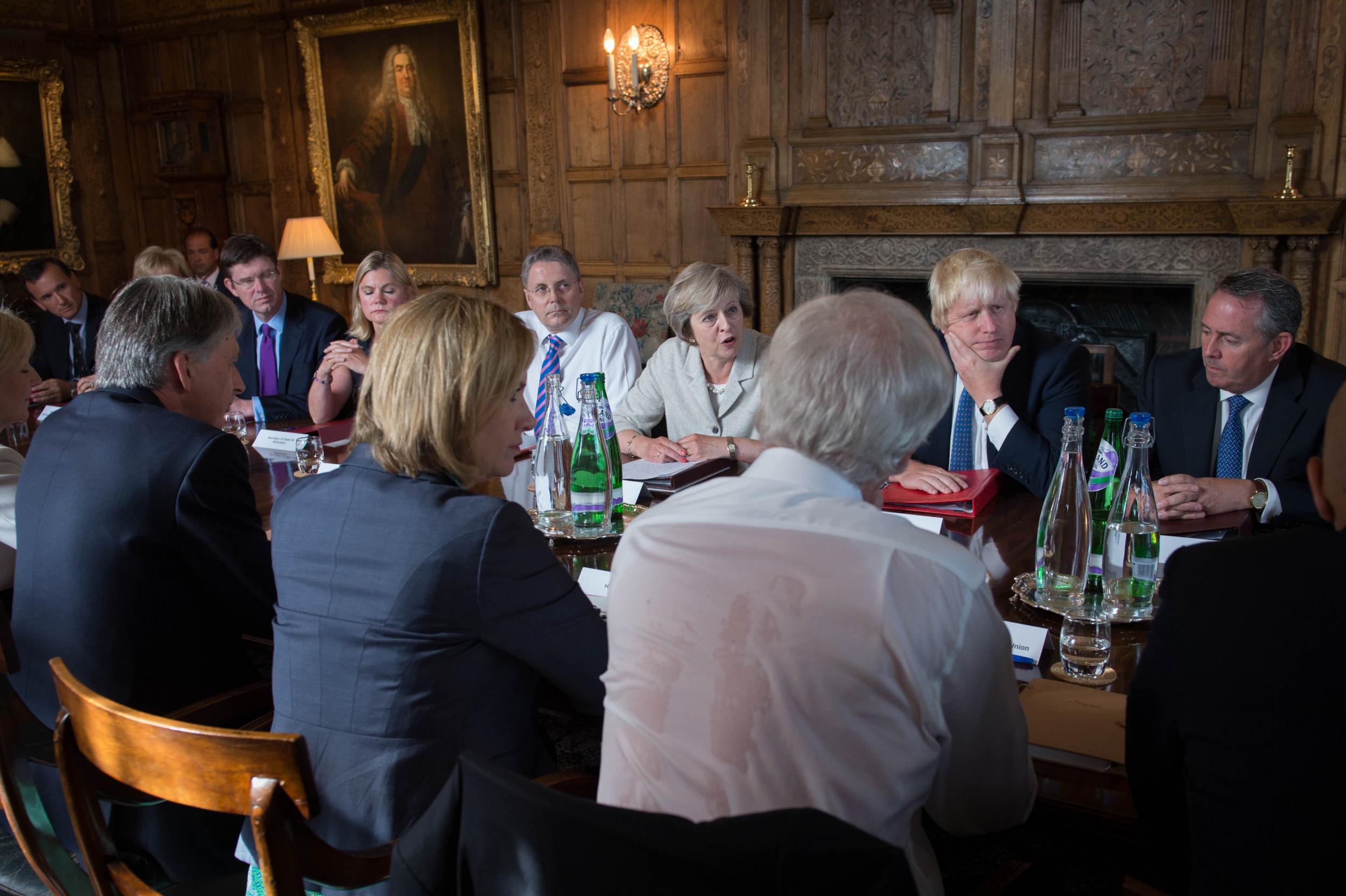The Brexit summit at Chequers was, essentially, an exercise in cherry-picking
The British have always sought a Europe made or remade in their own image, and the Europeans have always had to try to appease them, and rarely succeeded for long

For all the jargon about “managed divergence”, “regulatory equivalence” and “baskets”, the Brexit summit at Chequers was, essentially, an exercise in cherry-picking. It was progress, in the sense that, before this week, no one really knew which cherries the UK wanted to pick, and which it wished to reject. Now, we assume, the 11-strong Brexit “war cabinet” (an unfortunate nickname for it for a variety of ironic reasons) have agreed about which parts of the EU single market they’d like to stick with, and which they would like to jilt in favour of undercutting or otherwise competing with the EU.
In a speech next week, her third “landmark” attempt at a definitive text, Theresa May will share with the nation and the world the fruits of the labours of ministers, officials and diplomats. It is unlikely to satisfy many, as is the nature of such compromises. It is unlikely to acquire what Boris Johnson would call “lapidary” status.
It was entirely consistent with the chaos that has engulfed decision-making since the EU referendum in 2016 that a senior minister who was not at the summit, Jeremy Hunt, was supplied to the BBC’s Today programme to set out a clear line on an aspect of Brexit that was not actually much discussed at the summit – the EU customs union. While Labour and some Tory rebels are trying to bind the Government through a parliamentary vote to stay inside the EU customs union, Mr Hunt simply ruled it out.
Whatever the British Cabinet or Parliament decide to do, of course, is only part of the story. The reaction of the EU27, as represented by the European Commission and chief negotiator Michel Barnier, is crucial, and there is no reason to suppose they will be much more accommodating on this occasion than the many others when a British prime minister has turned up in Brussels asking for special treatment.
For what Ms May still likes to call a new “deep and special partnership” between Britain and the EU is, in fact, only the latest version of a long history of attempts by the British to “have their cake and eat it too” or “cherry-pick” or “go à la carte” with the European Union. It is viewed as arrogant by the EU – wearily so. Ever since the 1950s, the British have wanted all the benefits of economic cooperation and free trade, but they have also wanted to resist political integration, monetary integration and, more recently, migration and free movement of people.
From the days when the UK stayed fatally aloof from the talks that led to the founding Treaty of Rome in 1957, through the failed applications of the 1960s, through the grumpy membership after 1973, the “renegotiations” of 1975 and 2015-16, and right down to Brexit, there has been a consistent theme. The British have always sought a Europe made or remade in their own image, and the Europeans have always had to try to appease them, and rarely succeeded for long.
Still, there are grounds for optimism. Adamant as the EU27 may be about the sanctity of the EU’s “four freedoms”, about the integrity of the single market and about the viability of its customs union, it is also fearful of a disorderly Brexit and, above all, the dislocation for European business, the Irish border and EU citizens in the UK. Even if everything were running smoothly, achieving agreements for a smooth exit in little more than one year would be a huge challenge. Add in a split within both the British political establishment and the EU27 governments and a very messy Brexit becomes the probable default option. In such a situation, stubbornness is the last thing either side need.
For that reason, and more principled ones, there will continue to be much effort towards reaching a compromise. Like Westminster politics today, the EU, for all its idealistic language, has always been about horse-trading and balancing interests. Countries such as Ireland, Germany, the Netherlands, Spain, Denmark, Sweden and France all have much to lose from trade dislocation with the UK. It is also true that they would have still more to lose if Brexit meant that the EU was weakened politically (as well as financially), with the single market fragmenting, and some nations toying with their own secession. But, just like the British, there will be many leaders in Dublin, Berlin, The Hague, Madrid and elsewhere that will want, to borrow a phrase, to have their own cake and eat it too – a smooth Brexit and the continuation of the European project.
EU leaders should, then, look to the different and varying arrangements offered to Switzerland, Turkey, Norway and the recent trade deal with Canada to see that, even today, the EU’s policy towards its friends and neighbours is neither uniform nor unbending, and it has done the EU no harm to go bespoke from time to time. At least the British will be hoping that opinion is moving in that direction; if not, then the discussions at Chequers will have been entirely in vain.
Join our commenting forum
Join thought-provoking conversations, follow other Independent readers and see their replies
Comments
Bookmark popover
Removed from bookmarks